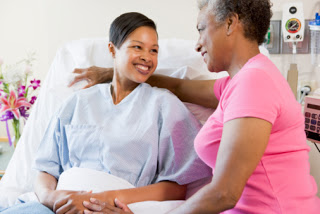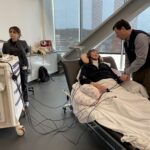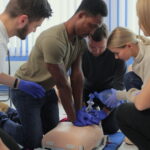Sunday marks National Cancer Survivors Day, a day set aside to celebrate those who have survived cancer and offer support to those who have been diagnosed with cancer.
From the day of diagnosis, you are a cancer survivor. Even though there are more than 13 million cancer survivors in the U.S. today, the perception of many survivors’ about cancer is still highly influenced by confusion, fear and false information. Here are some common myths:
Myth: The side effects of cancer treatment are always severe and there is nothing I can do about it.
Weighing the risks and benefits for your long-term health, your oncologist (cancer specialist) recommends cancer treatments that have been proven to work against your specific cancer. Depending on the treatment, emotional and physical side effects may affect your quality of life or ability to perform daily activities. However, various treatments can ease many of the side effects that occur during or linger after treatment is completed. It is also vital to note that cancer treatment is a joint decision between you and your doctor. If your symptoms are not acceptable, you should discuss the issues with your health care providers to determine which treatment or changes would be most appropriate for your unique situation.
Myth: My oncologist only wants to hear about life-threatening side effects, not about things like the fact that I am tired all the time; I should just feel lucky to be alive.
During and after treatment, cancer survivors confront many issues that are not life threatening, but are very important to health and wellbeing. The most common of these concerns include fatigue, cognitive (memory) problems, sexual problems, financial issues and problems at work. While your oncologist may not be the person to provide help with all of these, he or she is in a position to connect you to resources that CAN provide help. No problem is too small when it comes to survivorship, and for most things, the sooner you get help, the sooner you can move toward feeling better.
Myth: If I don’t constantly maintain a positive attitude, I am more likely to die from cancer.
There is no evidence that a positive attitude will have an impact on your long-term cancer outcomes. Being positive can help you keep your spirits up and improve your quality of life during and after cancer treatment, but it’s important to not feel obligated to stay positive all the time. Everyone who goes through cancer has ups and downs, and it is vital to let yourself experience whatever emotions you are feeling and to ask for help if you need it.
Myth: Since I already have cancer, I don’t need to worry about healthy habits or getting my routine health check-ups.
This is simply untrue. Cancer survivors are often so busy with their cancer, cancer treatment and pursuing care for related symptoms that the care for their non-cancer issues gets a lower priority. However, over the last few decades, statistics have shown that cancer survivors are living longer after their cancer diagnosis. This means that it is becoming more important for cancer survivors to stay in touch with their primary care physician and other healthcare providers for routine health maintenance, such as screening for other cancers and monitoring of lipids, glucose, thyroid, bone health and the like. In addition, a healthier lifestyle including consuming less nicotine and alcohol, eating a healthier diet and increasing your physical activity level may be able to improve your cancer and non-cancer related outcomes as well as your bothersome symptoms, although it cannot guarantee a 100 percent prevention or resolution. Many cancer survivors need guidance in regards to making healthy lifestyle changes. Consult your health care providers to help you determine which healthful changes and routine check-ups are best for you.
Myth: I am already so tired from my cancer treatments; exercise is only going to make that worse.
Exercise is known to help your heart, strength, fitness, overall and even cancer-related health. In addition, research has shown that physical activity may actually improve your physical and emotional symptoms, like fatigue. Every little bit helps – even an increase of just 10 minutes a day beyond your normal daily activities! In general, cancer survivors should be able to perform any physical activity that they want, as long as they have received clearance from their healthcare providers. If you have functional limitations that prevent you from taking part in physical activity or if you would need guidance for how to best start or increase your physical activity program, it might be useful to meet with a physical therapist or cancer-certified personal trainer.
G. van Londen, M.D., M.S., is the director of UPMC CancerCenter’s LiveWell Survivorship Program. She compiled these myths with a multidisciplinary team of experts.









